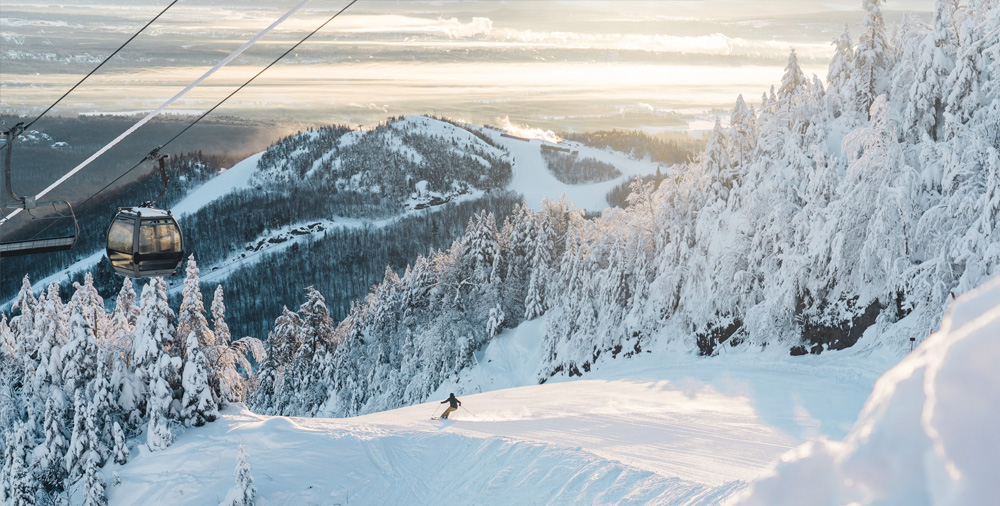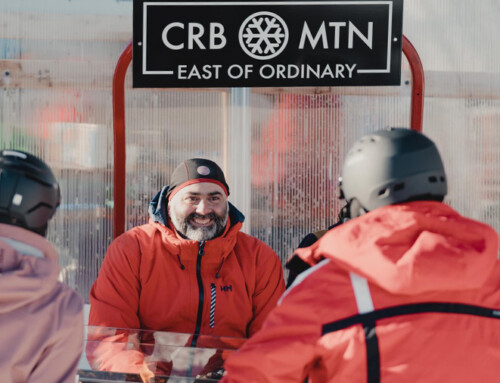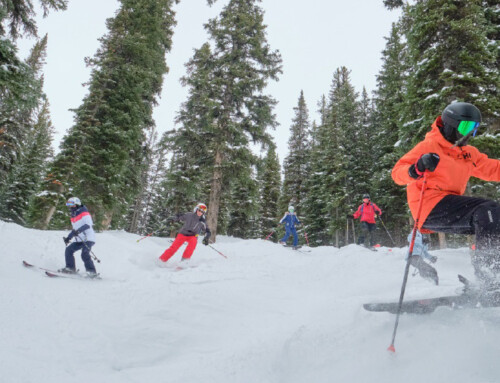By Marie-Piere Belisle-Kennedy, ski journalist
Canadian ski areas can be outstanding ambassadors of sustainable development for international and local visitors. Every mountain offers a window into the beauty of our incredible country. Committing to an eco-responsible approach requires freeing up human and financial resources, but above all, it requires a long-term vision that includes the participation of each of its employees and local dedicated partners and experts. It’s a team project where everyone wins.
For this month’s OnSnow winter win, we decided to feature a great example of green efforts and team work by the 2022 award winner of Excellence in Environment and Sustainable Development, presented by the Quebec Ski Resort (Association des stations de ski du Québec – ASSQ – Maneige) : The Corporation Ski & Golf Mont-Orford in the Eastern Townships of Quebec.
For the past few years, Mont-Orford has been working hard at implementing a sustainable development strategy that includes environmentally responsible procurement and events, as well as sound waste management. “This is an award that was really close to our hearts, because it supports our efforts,” said Simon Blouin, Executive Director of the Corporation Ski & Golf Mont-Orford. The corporation is a non-profit organization (NPO) that oversees and administers the activities, sports and events that take place on its land. As an NPO, all the costs generated by Mont-Orford’s activities are reinjected into its operations year-round.
It started with a committee of three external members who use the mountain and are passionate about sustainable development, plus three employees of the corporation. This committee oversees the sustainability of the operations and meets once or twice a year to monitor progress. A task force for residual materials management includes five employees who work to implement residual materials management procedures for the various departments across the resort. The corporation is committed to training all employees, educating customers, and raising awareness among their suppliers and partners.
Multiple partnerships, consultants, and certifications are part of this area’s success and ensure high standards of performance in residual material management. Since the fall of 2021, Orford has executed a sustainable development strategy and action plan based on 7 central pillars: governance, environment, water, social equity, cultural influence, communications, and sustained, inclusive and sustainable economic growth.
As the March 14, 2023, Ski Area Management (SAM) huddle discussed, sustainability encompasses so much more than going green. The growth of sustainability specialist positions at ski areas and beyond has the industry asking what it really means in practical terms. Does it mean placing environmental and social concerns above the bottom line, or is there a return on investment on sustainable business plans? The SAM podcast is now available on their site and featured a group of ski areas’ sustainability leaders discussing current efforts and future plans.
Beyond building a culture that empowers sustainable actions, ski areas are taking a more purposeful approach to improving their sustainability performance. Support exists for sustainability – organized groups, professionals, and resources are out there to support your advocacy efforts and guide you through local changes.
Ski schools can encourage their ski instructors to talk to guests about the importance of protecting the sport for future generations. It doesn’t have to feel like a lecture; a simple message of “we all love this sport, let’s work together to protect it” resonates well, suggests Ali Wines, POW Canada executive director. Lastly, resorts have a lot of economic sway. Developing relationships with local decision-makers and supporting them on local initiatives are great ways to effect change.








